Why Most People Don’t Understand the Great Books
A guide to seeing the Western Canon the way the masters did
The Great Books are great, but they can also be dangerous.
In Confessions, St. Augustine famously warned that the great books can corrupt your soul if you read them improperly, citing his own ill experiences reading the classics... And he wasn’t alone.
From the days of Socrates onward, the greatest thinkers agreed that education was not about accumulating knowledge, but forming the soul to love virtue.
Plato’s masterpiece, The Republic, is essentially a 500-page argument for this truth — that true education is not vain accumulation of knowledge, rather it’s about molding your soul to love Truth, Beauty, and Goodness.
But what is this difference between vain knowledge and true wisdom? What exactly does a real education look like?
The answer, of course, exists in the past.
Today, we’ll look into the lives and insights of some of the West’s greatest thinkers and scholars, to learn how to study like a true genius from antiquity.
Reminder:
On Dec 10, I’m hosting a live discussion on the Great Books, and how to recover the education modernity stole from us.
Seats are limited, reserve yours below:
The Socratic Dictum
On matters of education and the soul, Socrates is the appropriate place to begin:
He both founded Western Philosophy, and personally concerned himself with the question of educating the souls of men.
One of the primary questions Socrates concerned himself with is: “How can I teach others a love of wisdom?”
I would posit the answer begins to appear in two quotes of his, from two separate dialogues written by Plato:
“I know that I know nothing at all,” — The Apology
“Wisdom begins in wonder,” — Phaedrus
The former line is why the oracle of Delphi prophesied that Socrates was the wisest man to ever live. Effectively it’s an exhortation to humility — true education can only begin when you first become aware of your ignorance, and then embrace an awe/desire to seek truth.
The spirit of the true philosopher is never satisfaction — your primary concern is not what you know, rather a consistent striving to seek the Truth beyond yourself. Only once you adopt this attitude are you ready to engage with the Great Books.
Without this humility, you risk a pride that blinds you from appreciating the great books and the “great conversation,” of the Western Canon. You may read books, but you won’t understand them, just as Scripture warns:
“Proclaiming themselves wise, they became fools.”
Find Your Socrates
The fact is, no great thinker in the Western Tradition was self-made:
Plato had Socrates.
Aristotle had Plato.
Augustine had Ambrose.
Aquinas had Albert the Great.
Dante embraced Virgil and Aquinas.
Everyone had a mentor. The idea of the “self-made intellectual” is a modern fantasy.
In fact, in antiquity, “free-thinking” wasn’t admired — rather most scholars considered it arrogant, unstable, and spiritually dangerous.
But how can you find a mentor today, without paying $50,000 a year in tuition?
Thankfully, the internet makes this easy, as mentorship is more scalable than ever.
There’s an abundance of free resources online, and YouTube is filled with collegiate level professors lecturing on virtually any topic you can think of. If you want to read Plato, a simple google search will offer you an abundance of professional grade resources to supplement your reading with context.
Build a Proper Curriculum
As we discussed in last week’s email, any true education was not a randomized assortment of books, rather it had a structure.
A classical liberal arts education consisted of seven disciplines that systematically built off one another to train pupils to think, articulate, and discern patterns in the cosmos… or to discover and love Truth.
But as you engage in independent study today, you’ll run into another problem:
How do I build a curriculum?
Without a proper structure, the Great Books can intimidate, if not outright confuse you.
If your first 5 philosophy books jump from Plato, to Nietzsche, to Kant, to Heidegger, to Duns Scotus, you’ll only find yourself frustrated, confused, and throwing up your hands in defeat.
To build a good curriculum around the Great Books, you must understand “The Great Conversation.”
This is the idea that all the great thinkers, philosophers, and authors of western civilization were in conversation with one another. Aristotle’s philosophy dialogued with Plato, as did St. Augustine. Nietzsche’s work was largely a response and polemic to Socrates and Jesus, etc.
This is why studies on the Great Books often begin with the foundations of the Western Canon — namely the Bible, Greek Myths, and Greek Philosophy. These formulate the “beginning,” of the great conversation, and all meaningful dialogue of the past 2,000 years traces back to them.
A deep appreciation of antiquity teaches you where all our civilizational wisdom comes from, and helps prepare you to engage and understand modern thinkers.
Find Your Academy
As much as self-education is a necessity, the fact is, you can’t reach your full progress alone. None of the great thinkers did.
Plato and Aristotle both attended and founded academies where education meant dialectics and debate amongst peers.
The same was true for Tolkien and C.S. Lewis, whose success came through the Inklings literary group, where they met weekly to critique each other’s work.
Even medieval thinkers like Augustine and Aquinas were formed within living traditions — elders, peers, and a community engaged in daily discourse.
Most classical education in history was centered around the Socratic method: a student learns by engaging in dialectic, answering questions from a cross-examining interlocutor.
True education, then, is not merely personal contemplation. It becomes complete only through debating, articulating, and defending ideas in a community of friends united by a love of truth. Once you can articulate the ideas of a great book, and teach them, you’ve begun to embody them. Only then do you achieve true understanding and begin to transform your soul.
And it’s at this point that you’ve finally begun to take part in “The Great Conversation.”
Conclusion
So how do you actually begin giving yourself the kind of education the great minds received?
If I were starting from scratch today, I would return to the foundations of the Western Canon: Scripture and Greek philosophy (particularly Plato). This would not be a binge-read, rather a slow and steady meditation on these texts.
I’d build a simple curriculum:
A reading plan for Scripture
Three to five of Plato’s dialogues
And a mix of accessible commentary (free lectures, articles, or online analyses) to illuminate the text and its historical context.
For each book, I’d ask myself two questions:
What is the author actually arguing?
Could I explain that argument to a fifth grader? (If not, I haven’t really understood it).
Once I had a baseline understanding of the Bible and the Greeks, I would move forward chronologically — to the medievals, then the moderns, then contemporary thinkers — always making sure each new text was in conversation with the ones before it.
And most importantly, I would not do it alone.
Formation happens through dialogue — the same way it did for Plato, Augustine, Aquinas, and the Inklings. That’s the whole animating purpose behind the free Athenaeum book club, and there are many more places you find community online.
If you want to go deeper into this, and get clarity on how to build a real curriculum for yourself, I’m hosting a free discussion on Dec 10 about reclaiming classical education and seeing the world the way the geniuses of the past did.
You can save your seat here.
In the meantime, happy reading!
Reminder:
On Dec 10, I’m hosting a live discussion on the Great Books, and how to recover the education modernity stole from us.
Seats are limited, reserve yours below:


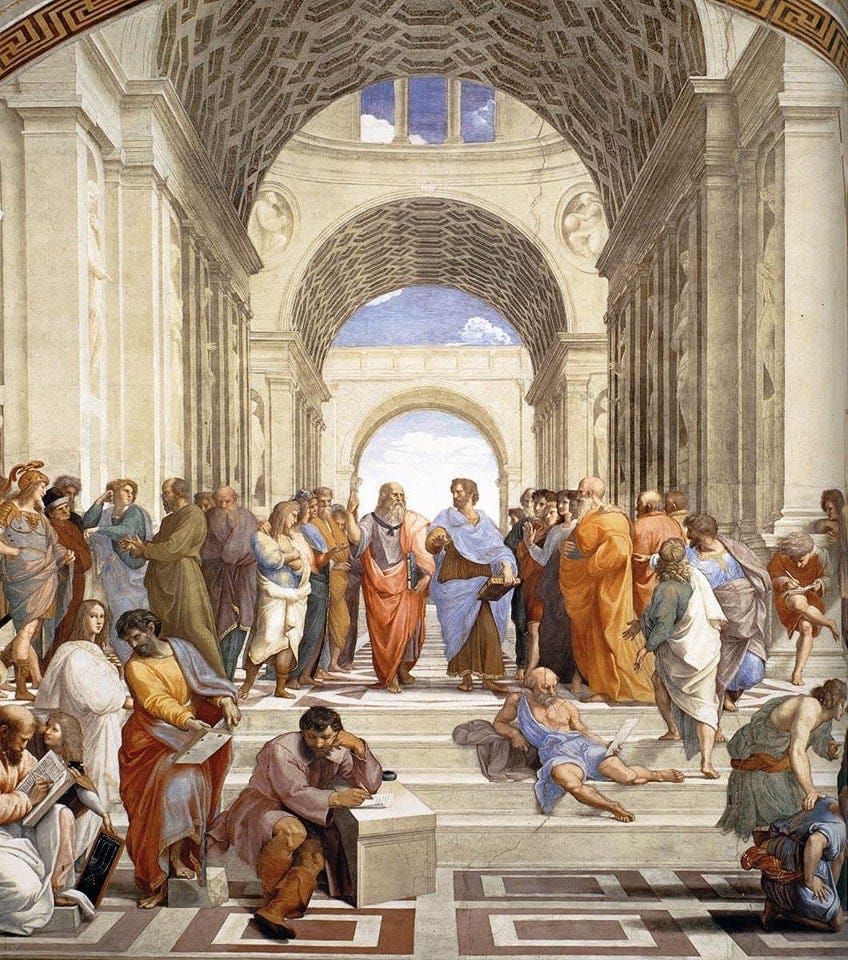
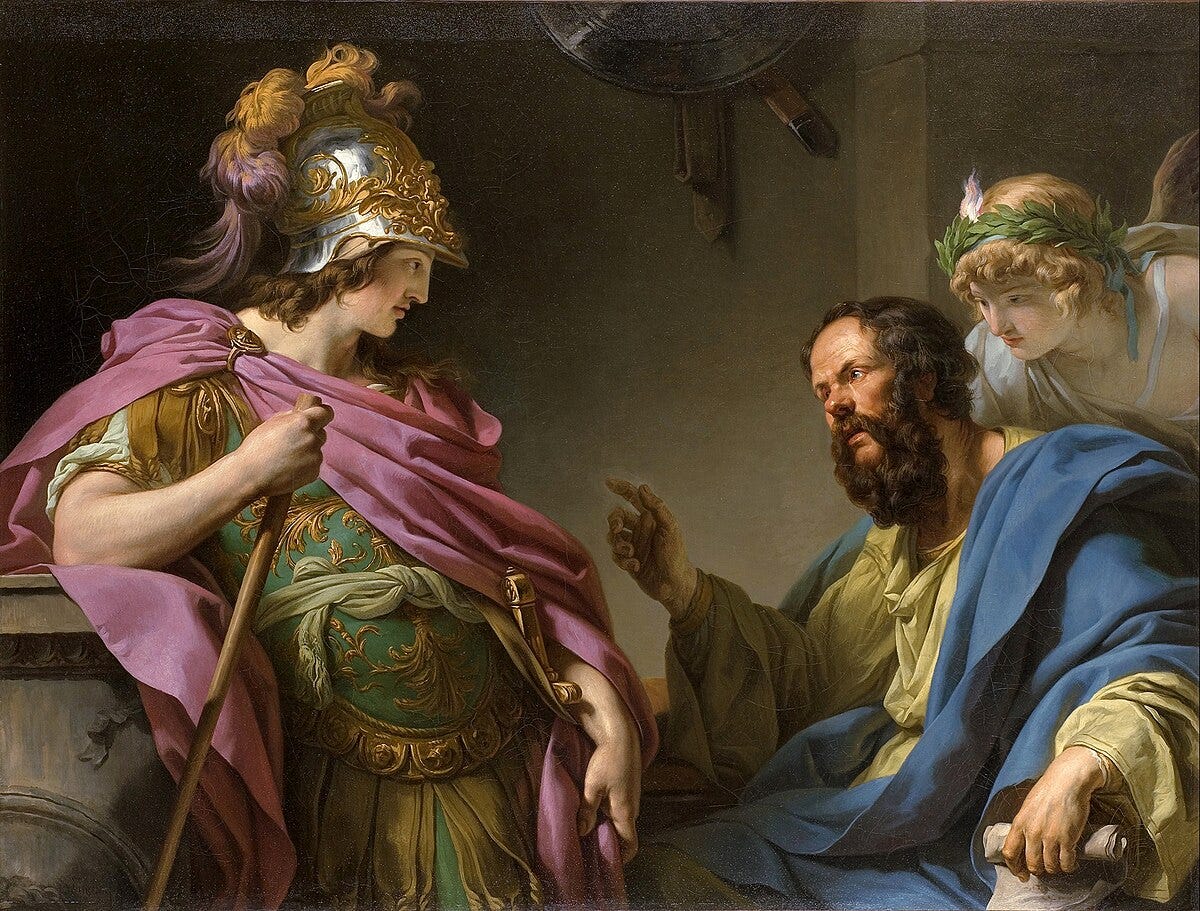
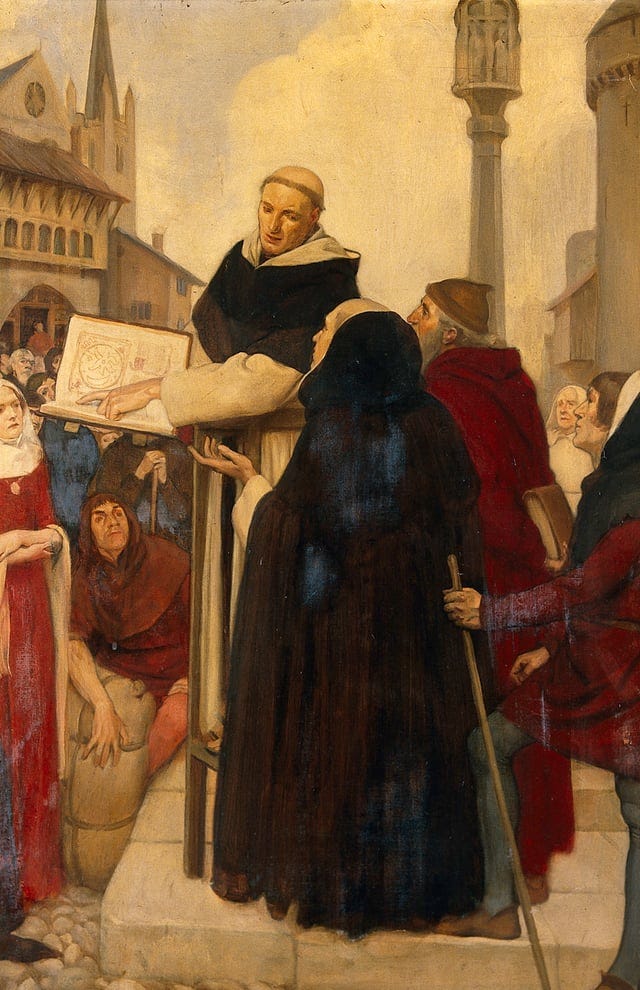
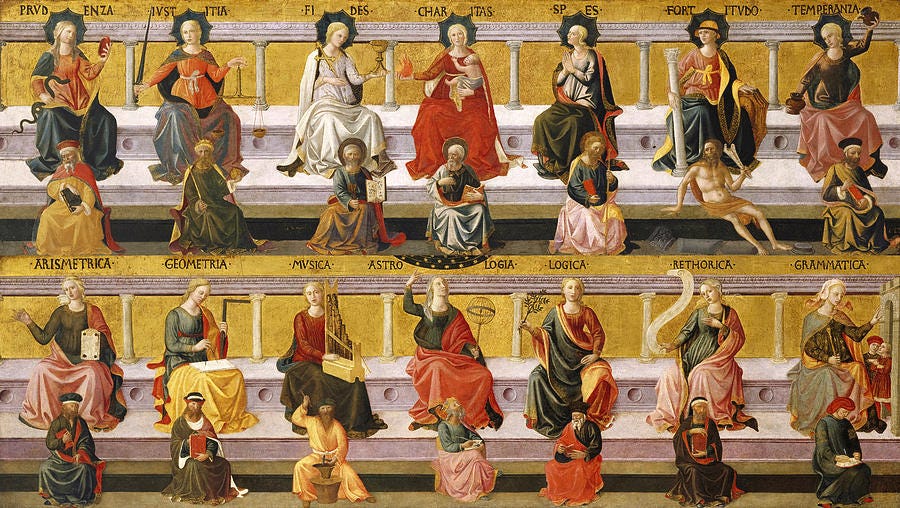
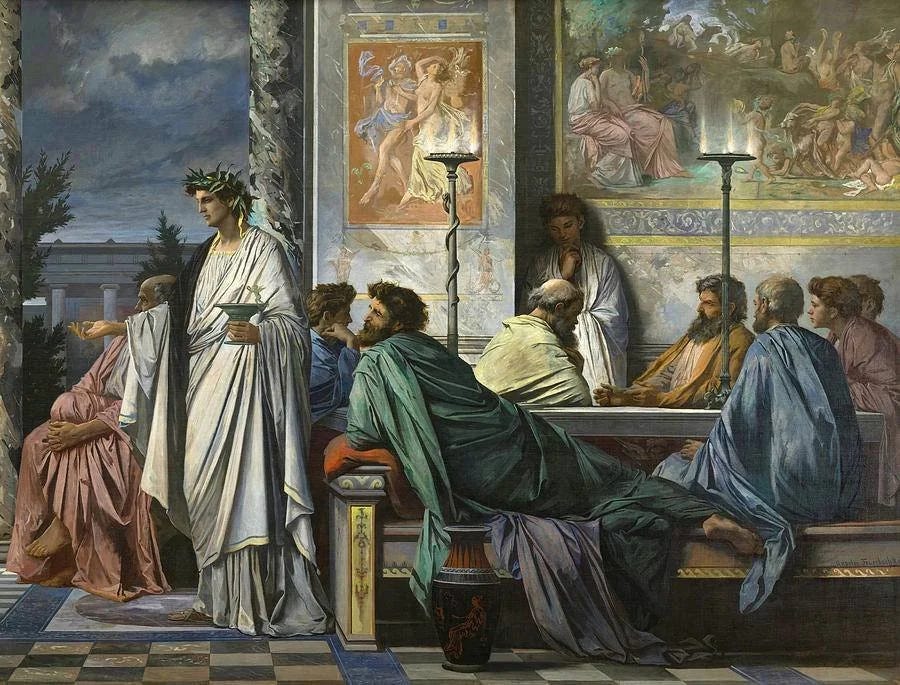
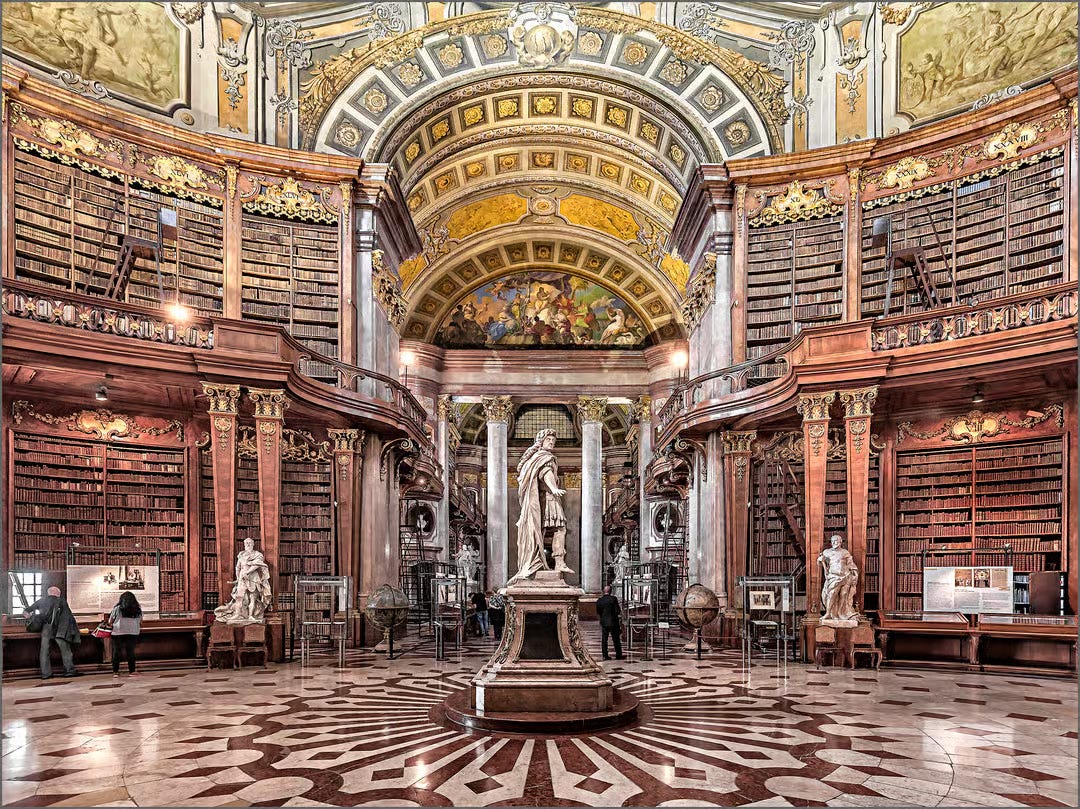
Augustine’s quote as a younger man, “Lord, make me Good, but not yet!”
Hmm, which Scriptures are you referring to? What is the goal of recommending "scripture"? I suggest that focusing on the "Western Canon" is a little narrow and limiting, and "Scripture" should probably start with a good translation of the Upanishads, an unedited but fully annotated Tao de Ching, a comparison of early Pali texts of Buddha's sermons, and Tibetan Buddhist texts of Vimalamitra's 17 works, and a close reading and contemplation of the ecstatic Gnostic poem, "Thunder, Perfect Mind", before exploring the writings of the patriarchal religions, namely some version of the Bible, and some version of the Koran.